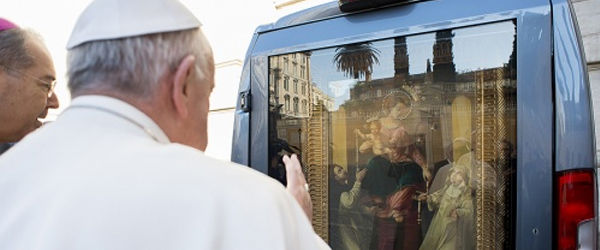Using conflict theory and war strategy, Yale law professor Stephen L. Carter outlined for an audience at The Catholic University of America April 11 why he thinks the fight for religious freedom should not hinge on litigation and "appeasement."Speaking at the university's Columbus School of Law to an audience that included Catholic University President John Garvey, Carter said the word "conscience" is inadequate to describe religion's proper sphere of influence in discussions about what has become known as "the wall of separation of church and state."
"To adopt that word as what it means to follow God ... is already a step on the path to defeat," he said, referencing the theory outlined by David Day in his 2008 book, "Conquest: How Societies Overwhelm Others."
Day says in his book that the point when one side conquers another is reached when "the losing side begins to adopt the winning side's terminology for itself," said Carter, whose courses at Yale include law and religion, the ethics of war and professional responsibility.
Carter said the concept of a wall separating church and state is "much older than the Constitution, and more important" in some respects. As envisioned by Roger Williams, an early American proponent of religious freedom, in 1644, the wall "was intended to keep the church safe, not the state" and was seen as a sort of peace treaty that worked best when both church and state kept their distance from the wall rather than continually testing it.
The history of the separation of church and state, however, has been "a constant pattern of the state testing the wall" and the church, with "minor exceptions," responding with inaction or resorting to litigation and abiding by the result, he said.
The only times the church tried to cross over into the state's sphere, he said, was during the clergy-led abolitionist movement before the Civil War and, to a lesser degree, the civil rights movement.
The history of the separation of church and state has been "a constant pattern of the state testing the wall" and the church, with "minor exceptions," responding with inaction or resorting to litigation and abiding by the result.
Carter said some see the formation of groups such as the Moral Majority and the Christian Coalition as an aggressive action by church people against the state, but "in game theory terms," they were "poorly thought-out retaliation for perceived aggression," without much long-term impact.
In comments on conflict theory, Carter described a game called Aggression in which two players take turns choosing whether to be aggressive toward the other or to back away. History has shown that "if one player is reluctant to retaliate, the other player keeps on coming," he said.
Carter said even compulsory public schooling --- which he said he strongly supports --- had its roots in an "odious" effort by members of the Know Nothing Party in Massachusetts to "proselytize immigrants." It was an act of aggression against the church, he said, because it "interfered with the ability of the church to project itself into the future through children."
Reviewing a history of "constant aggressing" by the U.S. government and constant backing away by the church, Carter said aggression "is natural to us when we can predict the other side will back away."
The strategy of litigation has not been successful either, because courts have become increasingly likely to rule that the church's sphere "only applies to matters of church government and faith and doctrine."
"The only way to protect religious liberty nowadays is to squeeze into some tiny corner that the courts will allow," Carter said. "To the extent that the preferred tool (of the church) is litigation, religious liberty has already lost."
Returning to the notion of a treaty between church and state, the Yale professor said a solution to the impasse lies not in the Constitution but in a mutual agreement to stop testing the wall separating church and state.
"A treaty can't work if it is constantly tested; it can't take a pounding," he said. "We're much better off if on both sides they stay well away from it."
Carter said religiously affiliated hospitals and universities "sit right on the wall and have an obligation to both" church and state.
"We need to value and nurture those institutions that straddle the wall," he said. "Those who straddle the wall could be the great translators."
---CNS

